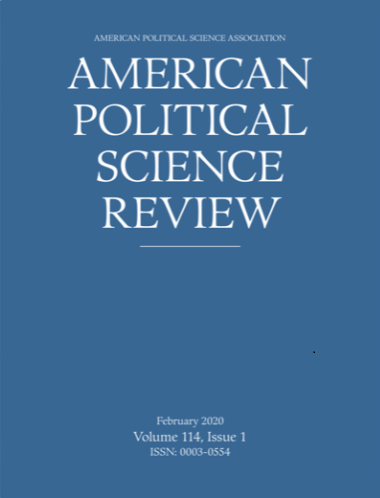Anarchy, Scarcity, Nature: Rousseau’s Stag Hunt and the Arctic Walrus Hunt Compared
IF 5.9
1区 社会学
Q1 POLITICAL SCIENCE
引用次数: 0
Abstract
Under conditions of anarchy, the predominant assumption is that scarcity leads to conflict. I contrast traditional Inuit walrus hunt practices to Rousseau’s stag hunt to demonstrate how mainstream international relations has it wrong on three counts: (1) radical scarcity need not lead to conflict-prone outcomes, (2) the historical eighteenth-century context of the stag hunt does not prove a predisposition against cooperation, and (3) the conditions of anarchy are irreducible to cultural institutions or to material constraints alone. I leverage Latour’s “symmetrical anthropology” to demonstrate that ideas and things have an equal potential to structure the culture of anarchical relations and to build on the literature which has established that comparative cultural data can be used to theorize anarchy. Rethinking the logic of anarchy is especially important in the age of the Anthropocene, given the prospects for radical ecological change in the near future.无政府、稀缺、自然:卢梭猎鹿与北极海象之比较
在无政府状态下,主要的假设是匮乏导致冲突。我将传统的因纽特人猎海象实践与卢梭的猎鹿实践进行对比,以证明主流国际关系在三个方面是错误的:(1)激进的稀缺不一定会导致容易发生冲突的结果,(2)18世纪猎鹿的历史背景并没有证明反对合作的倾向,(3)无政府状态的条件不能归结为文化制度或物质限制。我利用拉图尔的“对称人类学”来证明,思想和事物具有同样的潜力,可以构建无政府关系的文化,并建立在已经建立了比较文化数据可以用来将无政府状态理论化的文献的基础上。在人类世时代,考虑到在不久的将来会发生剧烈的生态变化,重新思考无政府状态的逻辑尤为重要。
本文章由计算机程序翻译,如有差异,请以英文原文为准。
求助全文
约1分钟内获得全文
求助全文
来源期刊

American Political Science Review
POLITICAL SCIENCE-
CiteScore
9.80
自引率
5.90%
发文量
119
期刊介绍:
American Political Science Review is political science''s premier scholarly research journal, providing peer-reviewed articles and review essays from subfields throughout the discipline. Areas covered include political theory, American politics, public policy, public administration, comparative politics, and international relations. APSR has published continuously since 1906. American Political Science Review is sold ONLY as part of a joint subscription with Perspectives on Politics and PS: Political Science & Politics.
 求助内容:
求助内容: 应助结果提醒方式:
应助结果提醒方式:


